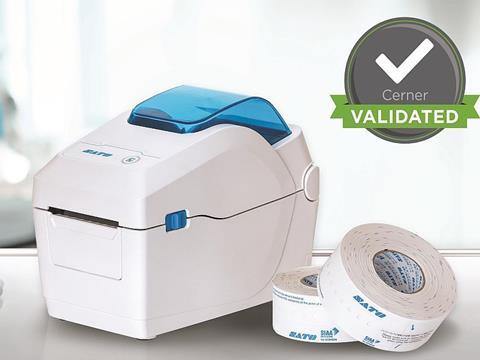
SATO has launched the compact WS2 printer, a device the company believes to be the healthcare industry's first disinfectant-ready label printer with antimicrobial casing that prints both patient ID wristbands and inpatient labels at a faster speed than equivalent models.
The company has designed the WS2 device to answer the needs of hospital staff in today’s global healthcare services. Over half of hospitals now prefer an easy to use, space saving compact printer which can support both patient ID wristbands and inpatient labels. The WS2 saves the user time while ensuring patient safety and removes the need for separate wristband and label printing devices.
Kevin Allart, European Healthcare Business Manager at SATO, commented: “We know that a high percentage of hospital workers would prefer to use a space-saving, multi-purpose device to allow them to safe-guard their patients.“With the WS2, we’ve given time-poor hospital workers the ability to print patient ID wristbands, drug administration labels and even inpatient meal labels on demand at up to 7-inches per second.”
The lightweight WS2 can be used in any location, from the patient’s bedside to the administrator’s desk. The device, which is up to 25% smaller than equivalent models on the market, is easily integrated into existing HIS/EMR hospital systems and is Cerner validated to ensure safety, quality and efficacy for patients.
The hassle-free device can also be controlled and configured with a dedicated setting tool or via a web browser.Once set up, the user-friendly WS2 features one-touch media loading and uncomplicated single-button operation. Its disinfectant-ready, antimicrobial plastic casing is tough enough to endure the stringent cleaning methods typically employed in sterile environments.
Priced to meet the tightest hospital budgets, the WS2 can be purchased from SATO in combination with SATO patient ID wristbands as a complete solution.
Allart continues: “As well as meeting the basic demands of our customers, the WS2 is a smart choice in terms of sustainability. There is no wastage during calibration, resulting in less label waste.“This supports hospitals in reducing their carbon footprint, which is important today and increasingly so for the hospitals of tomorrow.”













